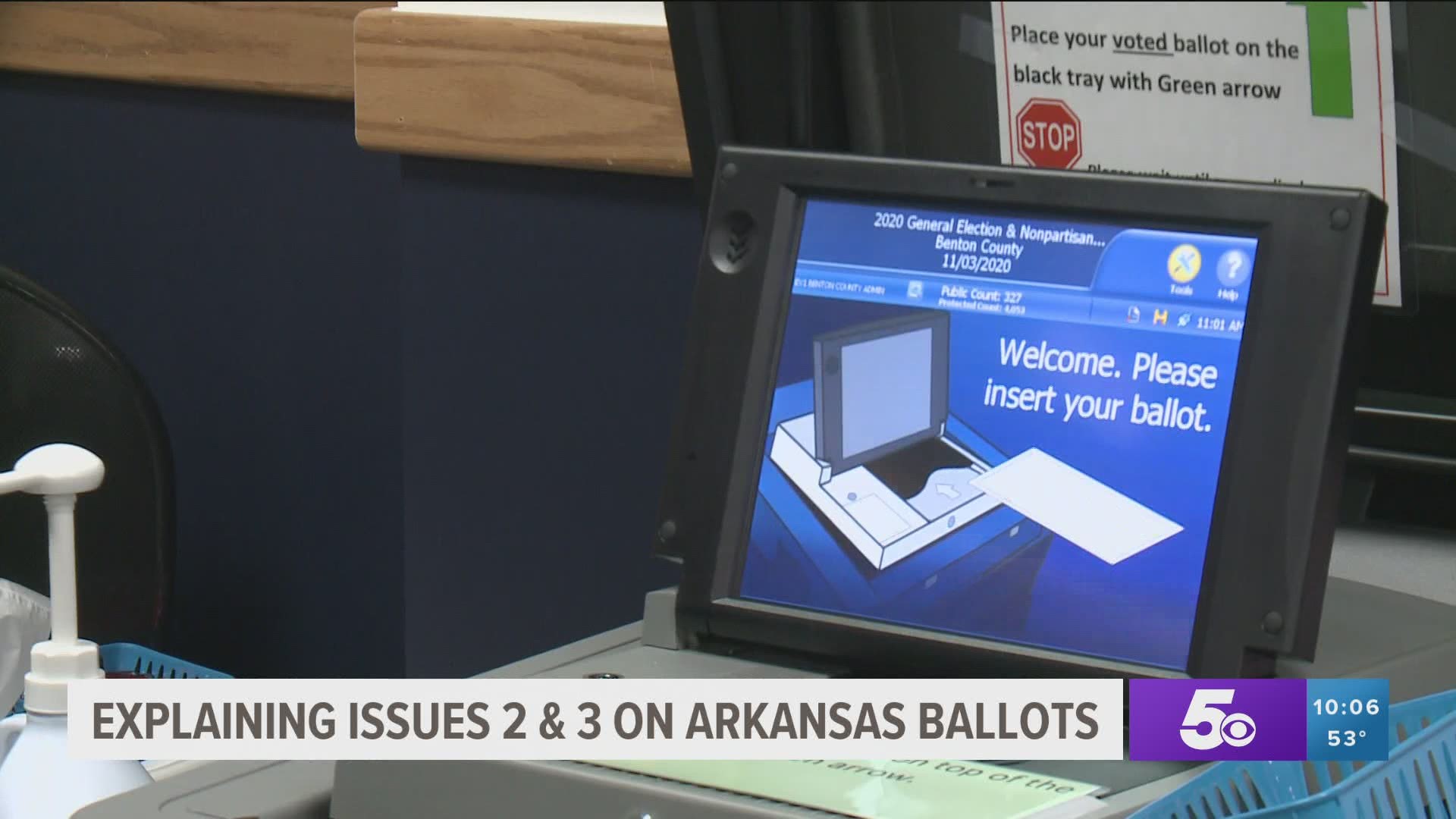FAYETTEVILLE, Ark — With the first day of early voting in Arkansas done, those who participated saw three proposed Constitutional amendments to vote on.
Governor Asa Hutchinson endorsed Issue 1 Monday (Oct. 19) around the state, click here for more information on that particular issue.
Issue 2 involves changing General Assembly term limits and allowing re-election upon a break in service, which means it would alter Arkansas’ term limits law by eliminating the lifetime ban after 16 years.
It would allow state lawmakers to serve 12 years, wait four years and then have the ability to serve another 12 years.
Those opposed to the amendment, like Tom Steele, the Chairman for Arkansas Term Limits, says the current term limits prevent career politicians in office.
“The founders didn’t envision professional politicians in the legislature," Steele said. "They envisioned citizen legislators. You come in, you stay for a while, you do your job, you go home and you go back to your farms or wherever you’re from.”
On the other hand, Issue 3 reforms a number of processes in the ballot initiative process, including how petitions are conducted.
For one thing, Issue 3 would change the language in the State Constitution by moving the deadline to submit petition signatures to January of an election year. Right now it's July of that year.
Supporter Kenneth Hall, the Executive Vice President of the Arkansas State Chamber of Commerce, says legal challenges would all be resolved earlier in the year, leading to less confusion as the vote approaches.
Canvassers will need signatures from 45 of the state's 70 counties instead of just 15 and the chance to get more signatures in a cure period after the deadline goes away.
If this passes, lawmakers would then have to get a 60% vote.
“It’s not a huge increase but when you got usually about 20 issues in the House and 20 more in the Senate competing for those three spots this could very well have a very large impact on what gets referred,” Hall said.
Opponents say Issue 3 would make things much more difficult for the public to get a petition on the ballot and threaten to take away a check the public has on lawmakers.

